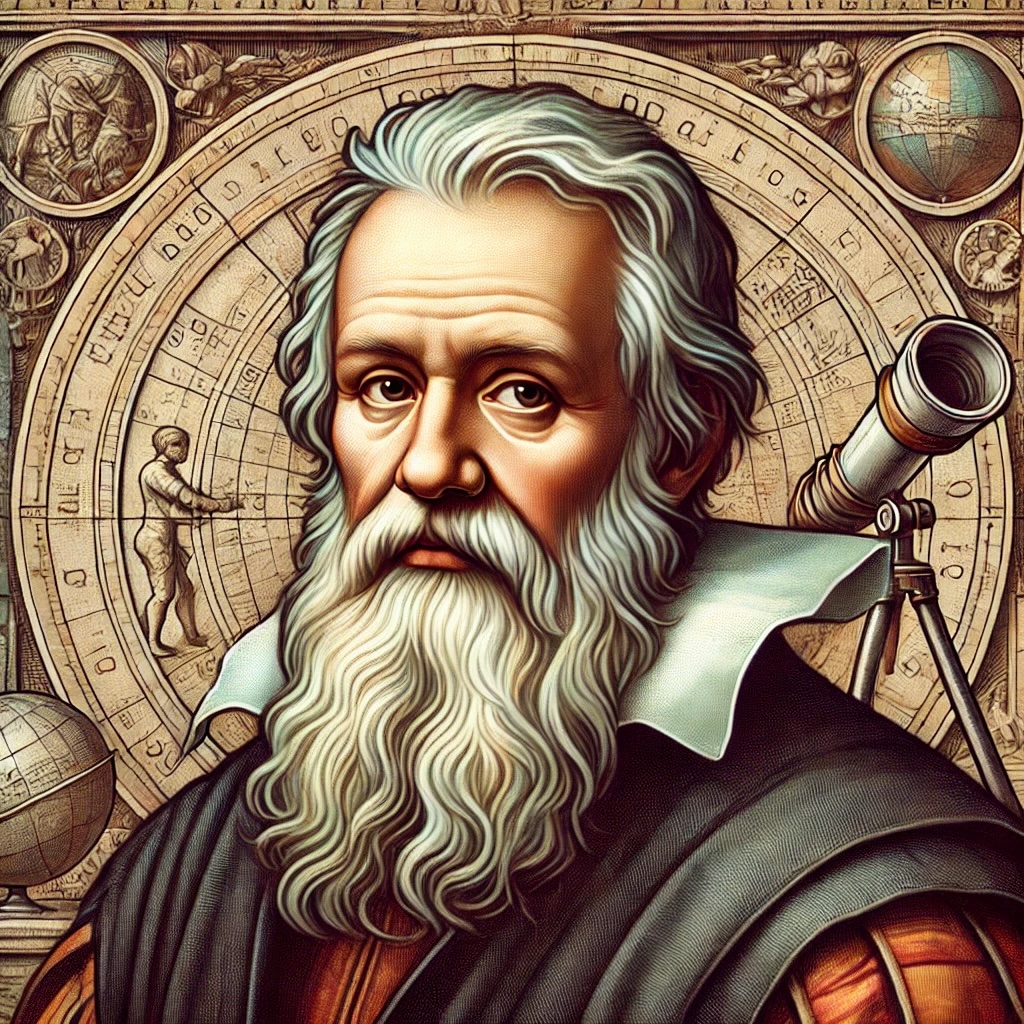Galileo Galilei (1564-1642)

Galileo Galilei, a master astronomer and mathematician from Pisa, made groundbreaking discoveries in physics and astronomy, including the laws of falling bodies and the moons of Jupiter. His support for Copernican theory led to conflict with the Catholic Church, resulting in house arrest. Despite blindness, Galileo’s work profoundly shaped modern science .
Born in Pisa in 1564, Galileo Galilei was a master astronomer and mathematician who made numerous groundbreaking discoveries that have had a lasting impact on science. His contributions include the observation that all falling bodies, regardless of their weight, descend at the same velocity, challenging the prevailing Aristotelian view of physics. Galileo also established the parabolic trajectories of projectiles, a fundamental principle in the study of motion.
In addition to his work in physics, Galileo made significant contributions to astronomy. He discovered four moons orbiting Jupiter—now known as the Galilean moons—which provided strong evidence against the geocentric model of the universe. His observations of sunspots revealed the sun’s rotation and challenged the idea of celestial perfection that had dominated scientific thought for centuries. Galileo also perfected the refracting telescope, enabling him to make these and other celestial observations, and he demonstrated the utility of the pendulum for accurately measuring time, which laid the groundwork for the development of more precise timekeeping devices.
Galileo was not only a brilliant scientist but also a revered teacher, known for his ability to communicate complex ideas clearly and effectively. However, his support for the Copernican theory, which posited that the Earth and other planets revolve around the Sun, brought him into conflict with the Catholic Church. The Church, which upheld the geocentric model of the universe, saw Galileo’s ideas as heretical. In 1633, he was brought before the Roman Inquisition and forced to recant his support for Copernicanism. Although sentenced to imprisonment, his punishment was ultimately reduced to house arrest, where he remained for the rest of his life.
Despite these challenges, Galileo continued his scientific work, even as his health declined. He became almost entirely blind five years before his death in 1642, but his influence on the world of science remained undiminished. Galileo’s work laid the foundation for modern physics and astronomy, and he is often referred to as the “father of modern science.” His insistence on observation and experimentation as the basis for knowledge set a new standard for scientific inquiry, inspiring future generations of scientists to pursue truth through empirical evidence.
 >
>